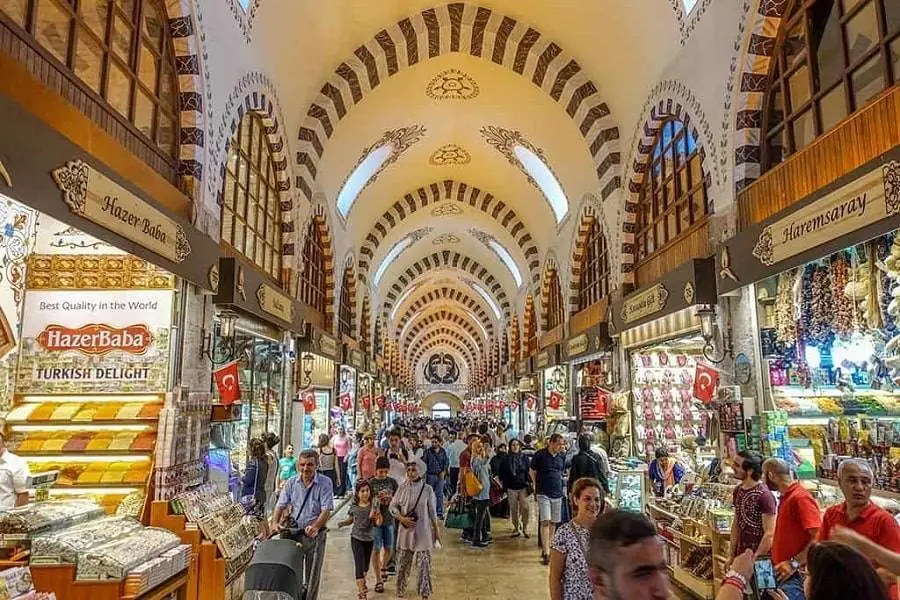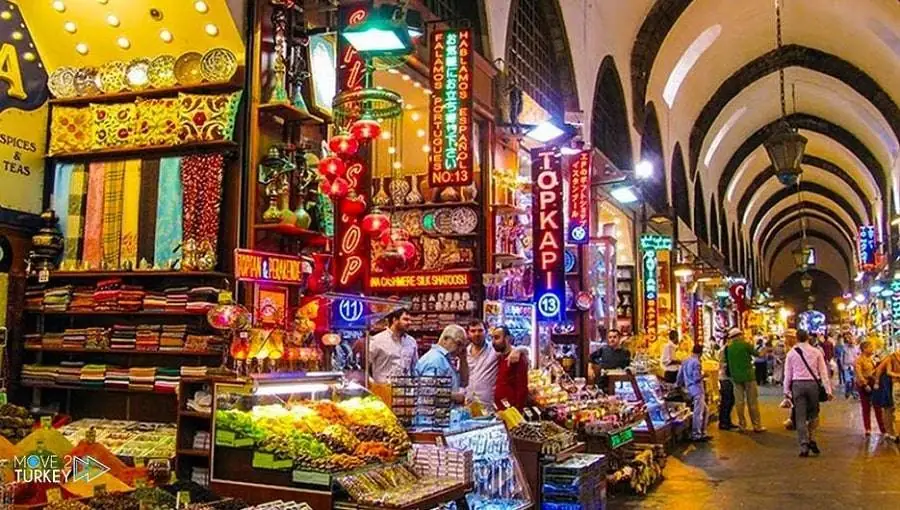In the Byzantine era, a market named Marco Annulus existed where the Egyptian market is now in Istanbul. At that time, several necessities were sold there. In 1660, Istanbul’s Egyptian Market was converted into a section of the new mosque, which is now situated very near to the market. Khadija Turhan, the mother of Ottoman Sultan Mohammed V, gave Kazem Agha the order to construct it.

Many of the then-dominant architectural forms were combined in the market’s superb urban architecture, which took the shape of a roofed ceiling. Egypt’s taxes were used to pay for the market’s construction.
To reduce the expenditures and expenses for the new mosque next to the market, it was decided to create this market at the time. The name “New Market” came from the mosque next door, where various spices imported from India were sold along with coffee, herbs, perfumes, and food.
The market’s original name was changed to the Egyptian Market in Istanbul in the 18th century, and it also experienced some natural calamities including earthquakes and fires before being repaired by the Municipality of Istanbul in 1940 and 1943. Six doors and 113 stores make up the L-shaped market, which sells a variety of goods including clothes, presents, gold, spices, nuts, and dried fruits.
♦ 5 Days Turkey Tour – Istanbul Antalya Tour

The market’s original name was changed to the Egyptian Market in Istanbul in the 18th century, and it also experienced some natural calamities including earthquakes and fires before being repaired by the Municipality of Istanbul in 1940 and 1943. Six doors and 113 stores make up the L-shaped market, which sells a variety of goods including clothes, presents, gold, spices, nuts, and dried fruits.
How to Get to Egyptian Market in Istanbul
The M2 metro line, which runs through Taksim and connects Yenikapi and Haciosman, will take you to the Egyptian Bazaar. The T1 tramway, which connects Bagcilar and Kabatas, may also take you to the Egyptian market. Just get out at Eminonu Station and start walking for a short distance. Municipal public buses that are concentrated at their final stop in the surrounding Eminonu neighbourhood can take you to the Egyptian market.

